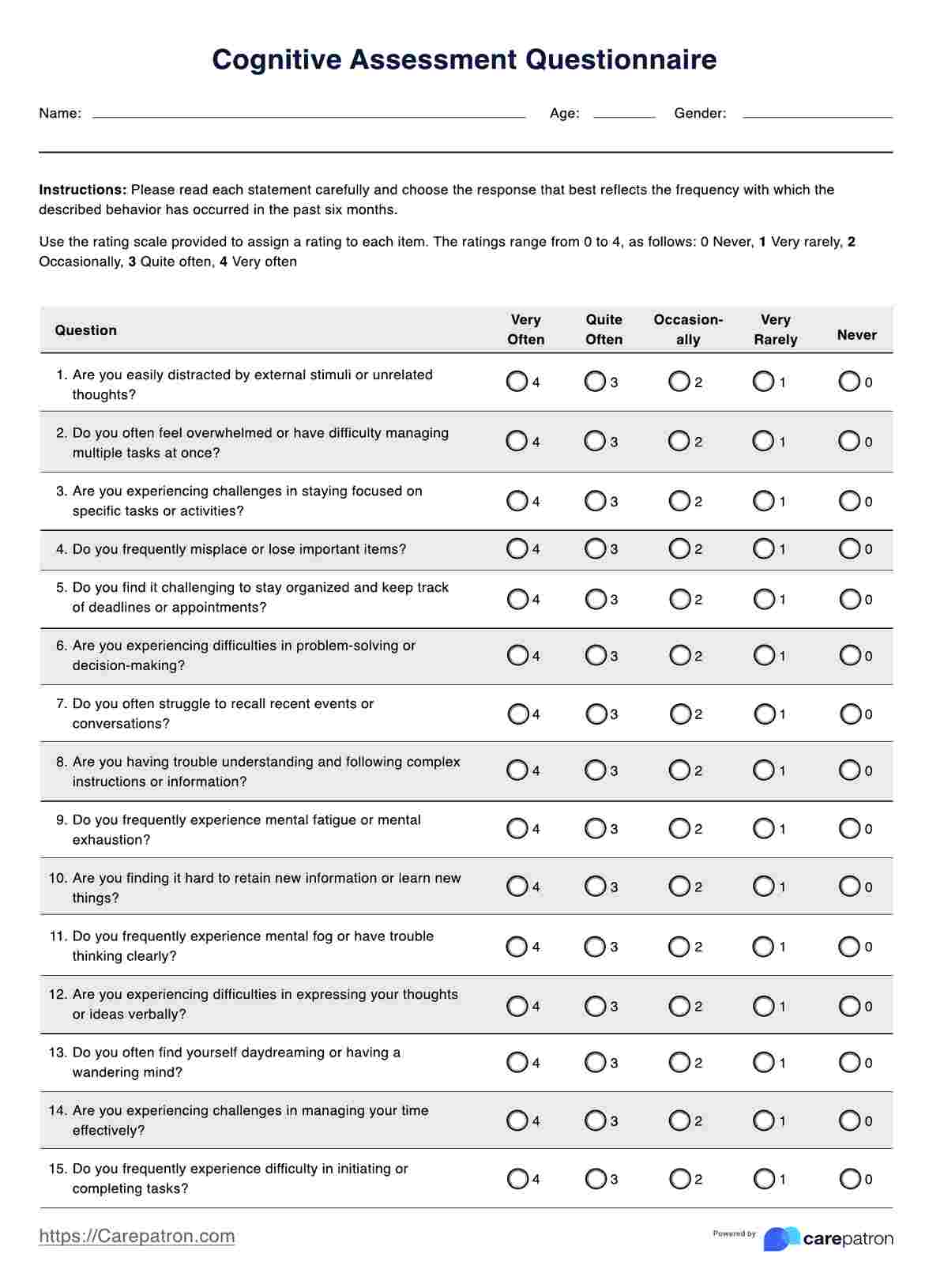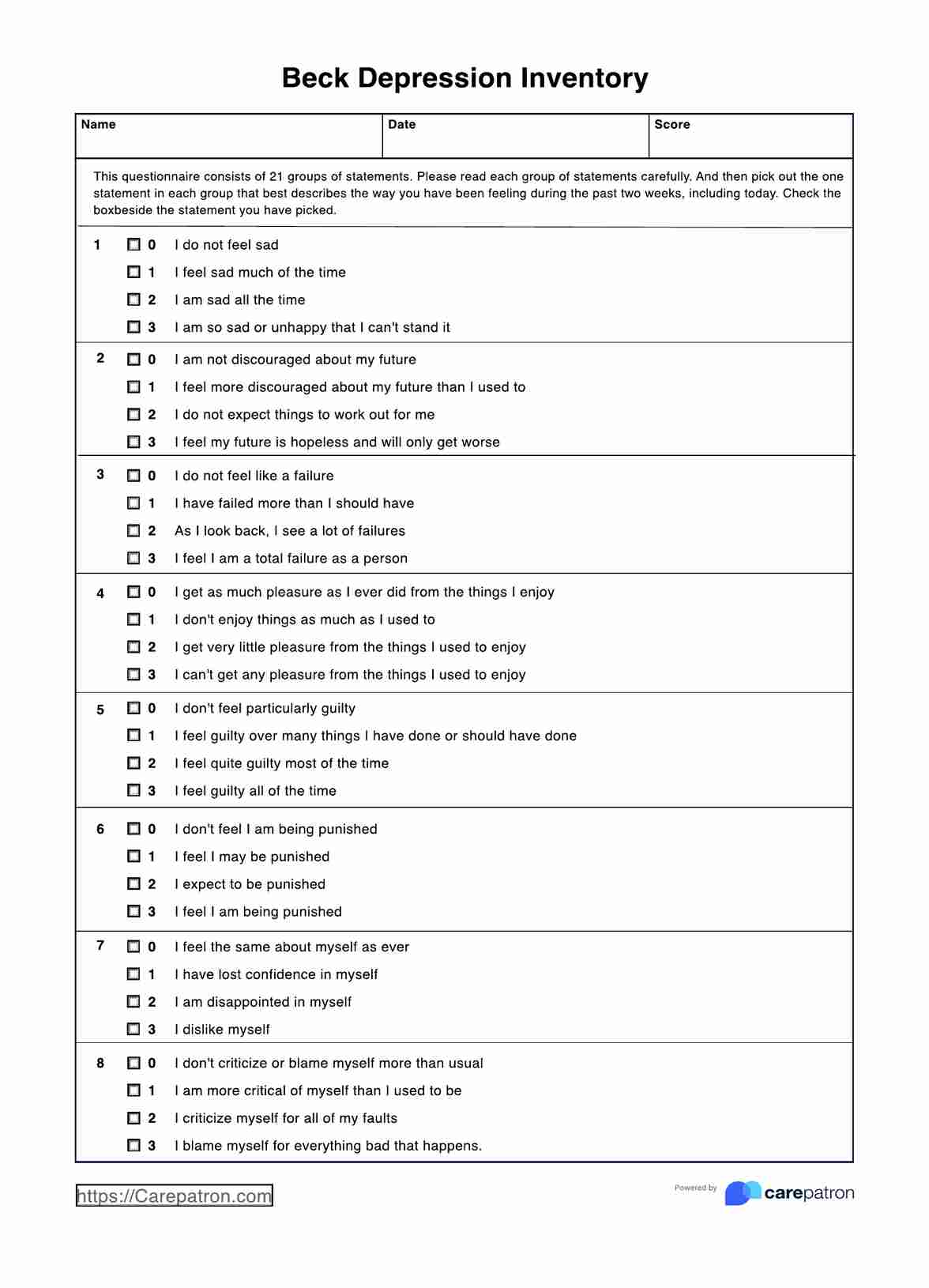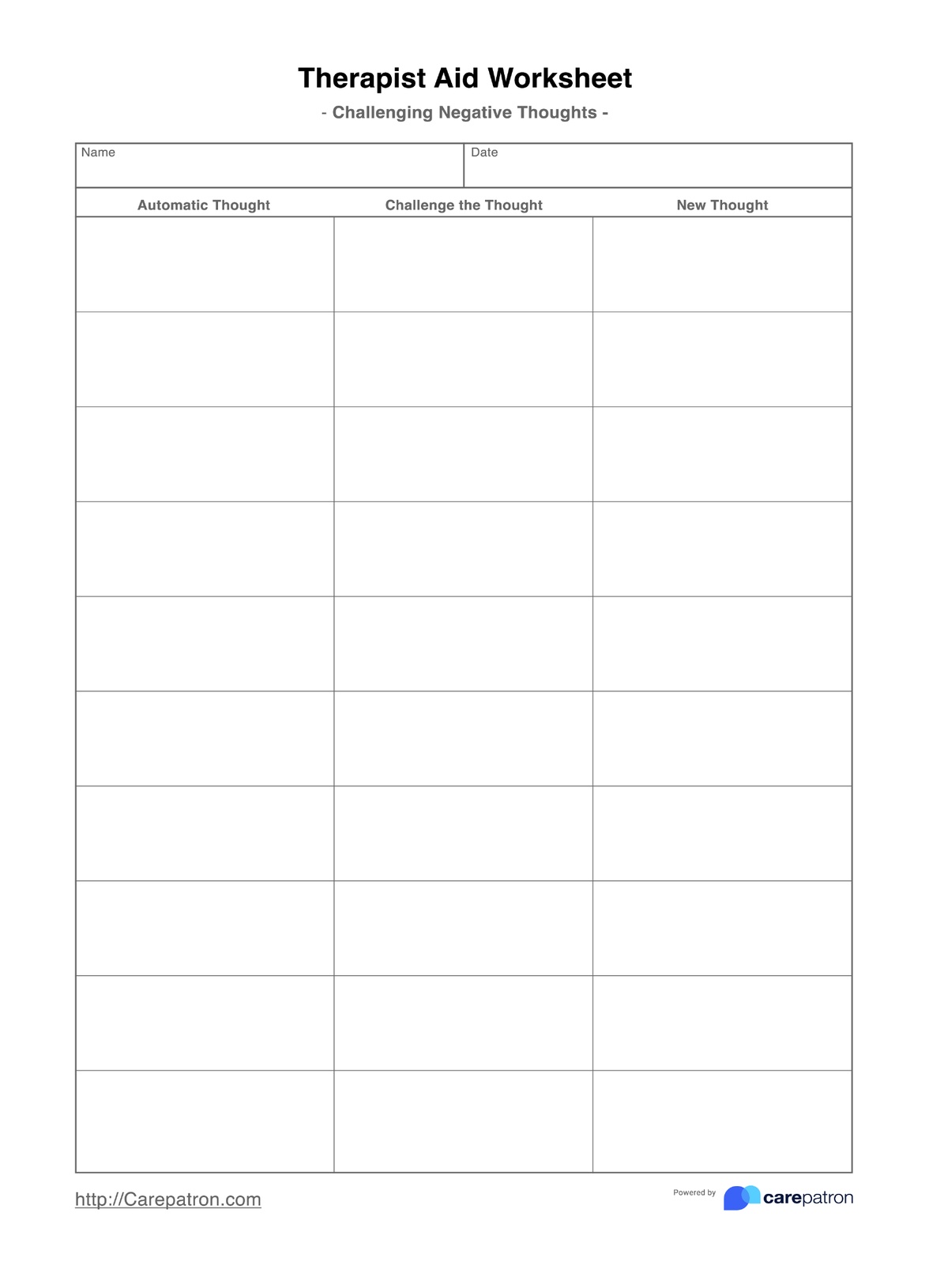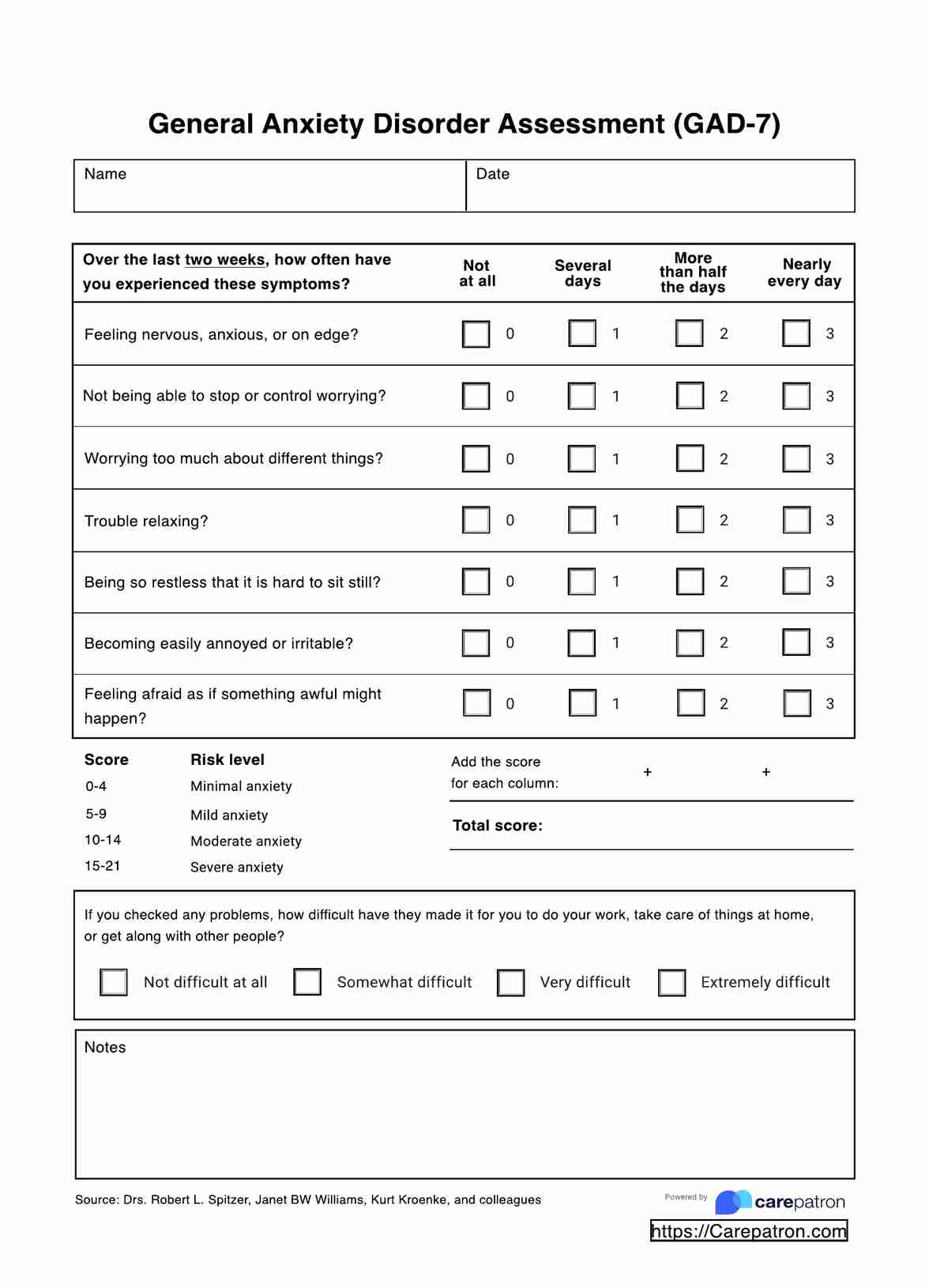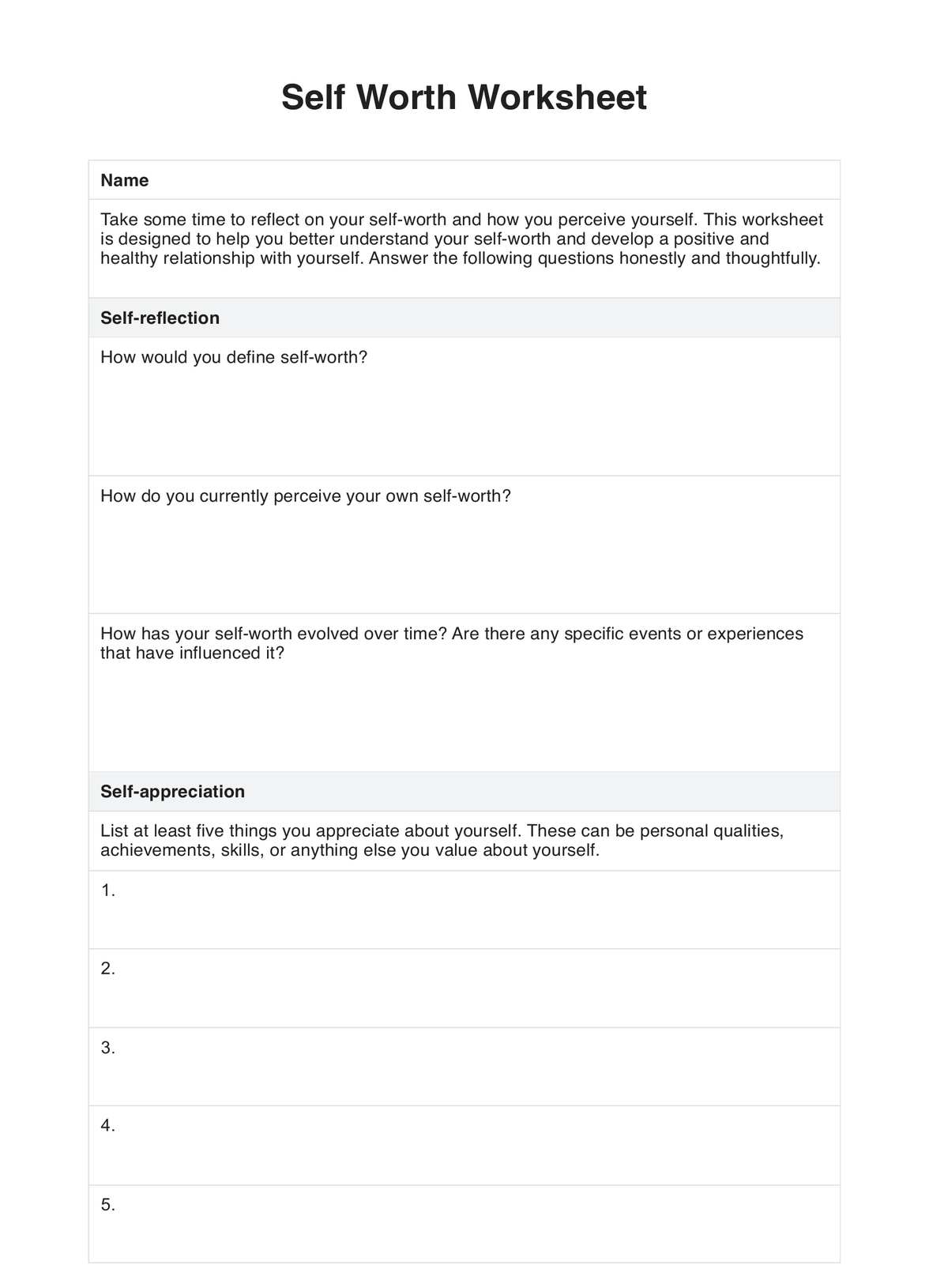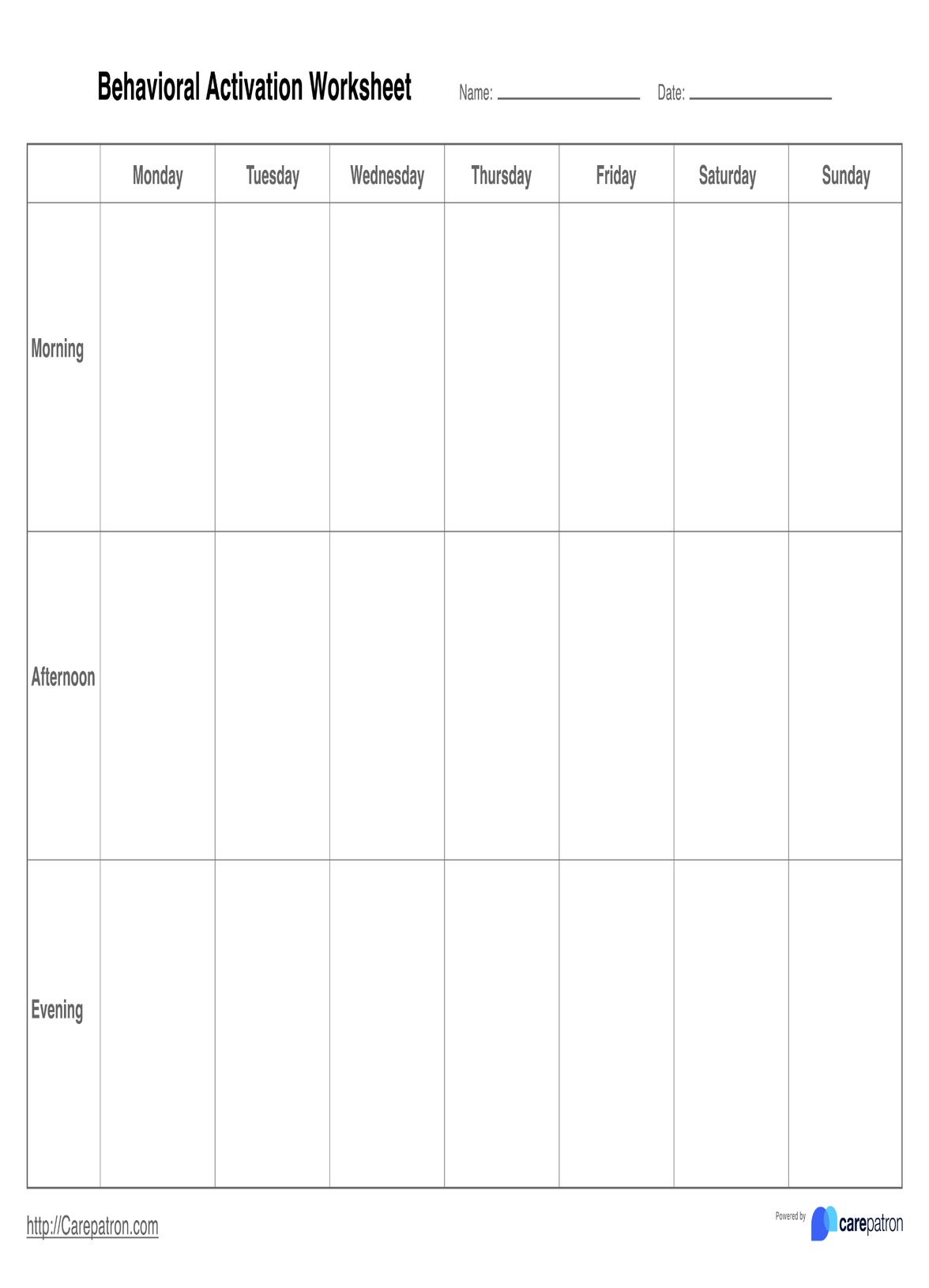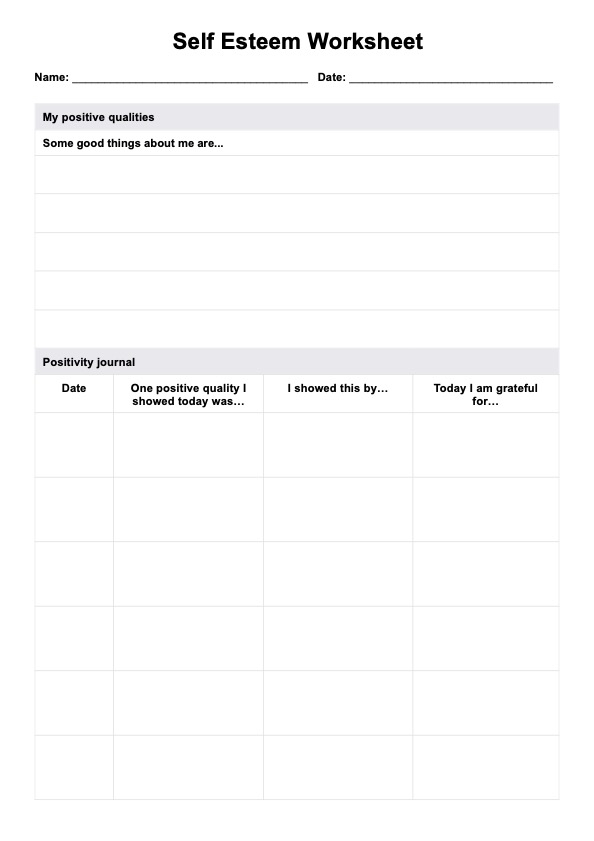Self Reflection Worksheets
Enhance self-awareness and personal growth with our Self-Reflection Worksheet. Explore your thoughts, set goals, and achieve self-improvement.


What is a Self-Reflection Worksheet?
A Self-Reflection Worksheet is a valuable resource for facilitating introspection, promoting increased self-awareness, enhancing emotional intelligence, and facilitating personal growth. It is a structured document or form that individuals use to engage in thoughtful contemplation about various aspects of their lives, experiences, or goals. These worksheets are commonly used in educational, therapeutic, professional, and personal development contexts to help individuals gain insights into their thoughts, feelings, behaviors, and progress.
This worksheet typically includes prompts, questions, or prompts that encourage individuals to explore their thoughts and feelings on a particular topic or area of their life.
The benefits of using Self-Reflections are numerous. They can promote personal growth and development by allowing individuals to process emotions and thoughts. Additionally, they can be a valuable tool for professionals, such as teachers who like to let their students reflect on themselves, therapists (especially those who practice commitment therapy), or career counselors to assess their performance and refine their strategies. These worksheets can be powerful resources for supporting your journey to a deeper understanding of yourself and your growth.
Self Reflection Worksheets Template
Self Reflection Worksheets Example
How to use our Self-Reflection Worksheet:
Step 1: Access the worksheet
Start by obtaining a copy of our printable Self-Reflection Worksheet via the button above.
Provide a copy of the worksheet to your client. Have them find a quiet and comfortable space to concentrate without distractions. Allocate a specific time for their reflection session.
Step 2: Instruct clients to read the prompts
Instruct your client to read the worksheet's prompts. These prompts are designed to guide their thinking and introspection.
Have them respond to the prompts honestly and thoughtfully. Ask them to consider their thoughts, feelings, and experiences related to what they've written.
Step 3: Goal setting
Have them use the worksheet to set specific goals or action steps based on their reflections. They should also indicate self-soothing activities that help them combat the stress of their challenges.
Step 4: Review and revise
After receiving a completed worksheet, review their responses and consider whether any keywords or themes emerge from their reflections. These can provide valuable insights into how they reflect on themselves and what they usually glean from self-reflection.
Step 5: Implement changes
If their reflections reveal areas for improvement or change, they should take action accordingly by developing a feasible plan that allows for regular self-reflection practice.
Self-reflection is most effective when it becomes a common and essential practice. Consider revisiting the worksheet periodically to track their progress and make adjustments.
When would you use this worksheet?
A Self-Reflection Worksheet is a versatile tool with applications across various fields and contexts. The timing of its use can significantly impact its effectiveness. Here's a closer look at when it's most appropriate for relevant practitioners to employ this resource:
- Personal growth journey: Personal development enthusiasts can incorporate these worksheets into their routines as part of their ongoing self-improvement journey. Regular reflection on goals, values, and achievements can lead to continuous growth.
- Conflict resolution: When conflicts arise in personal or professional relationships, Self-Reflection Worksheets can serve as a tool for individuals to explore their emotions, understand their perspectives, and contribute to conflict resolution discussions.
- Post-project assessment: After completing a significant project or assignment, professionals in project management, marketing, or engineering can use Self-Reflection Worksheets to evaluate the project's success, identify lessons learned, and plan for improvements in future endeavors.
- Career transitions: Job seekers or those contemplating career changes can utilize Self-Reflection Worksheets to clarify their career objectives, skills, and values. This assists in aligning job searches with personal aspirations.
- Team building and leadership development: Managers and leaders can encourage their teams to use these worksheets periodically for self-assessment and goal-setting. This fosters more robust team dynamics and leadership development.
Benefits
Self-Reflection Worksheets offer many benefits across personal, professional, and educational domains. Here are six comprehensive advantages of using these forms:
Enhanced self-awareness
Completing Self Reflection Worksheets encourages deep introspection, helping individuals recognize their strengths, weaknesses, values, and emotions. This heightened self-awareness enables better decision-making, improved self-confidence, and personal growth.
Structured goal setting
These worksheets facilitate the creation of clear, actionable goals. By breaking down objectives into smaller, manageable steps, individuals can map out a path to success, increasing their motivation and accountability.
Effective learning tool
In educational settings, these worksheets benefit students by reinforcing lessons, encouraging metacognition, and providing a structured approach to review. This enhances comprehension, retention, and academic performance.
Commonly asked questions
Students, professionals, therapists, educators, and anyone seeking personal or professional development use self-reflection worksheets.
They are used after significant events, during transitions, periodically for goal setting, and during personal or professional challenges.
They are filled out by responding to prompts and questions, encouraging deep introspection and self-assessment. Responses can be written or typed.


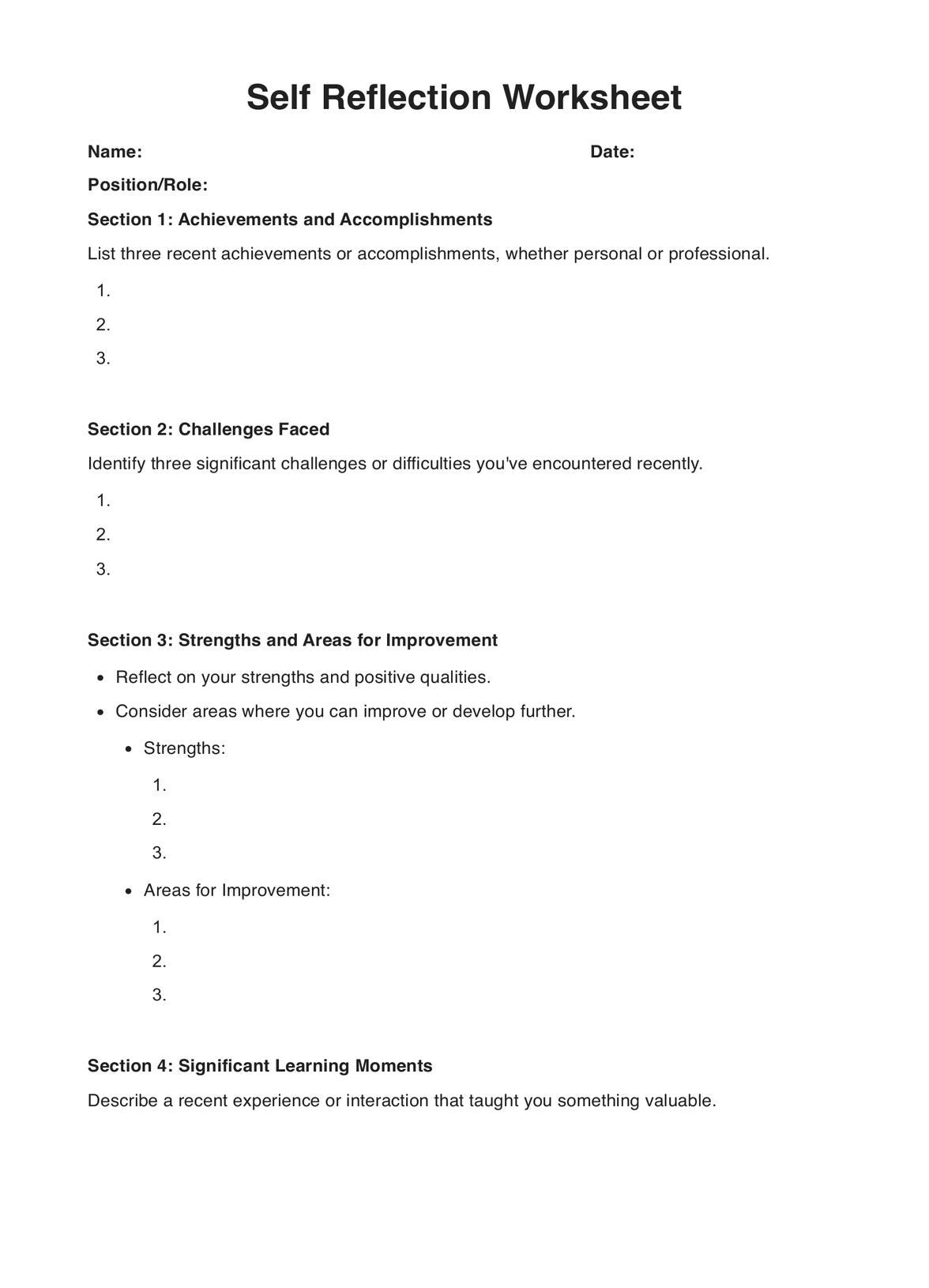
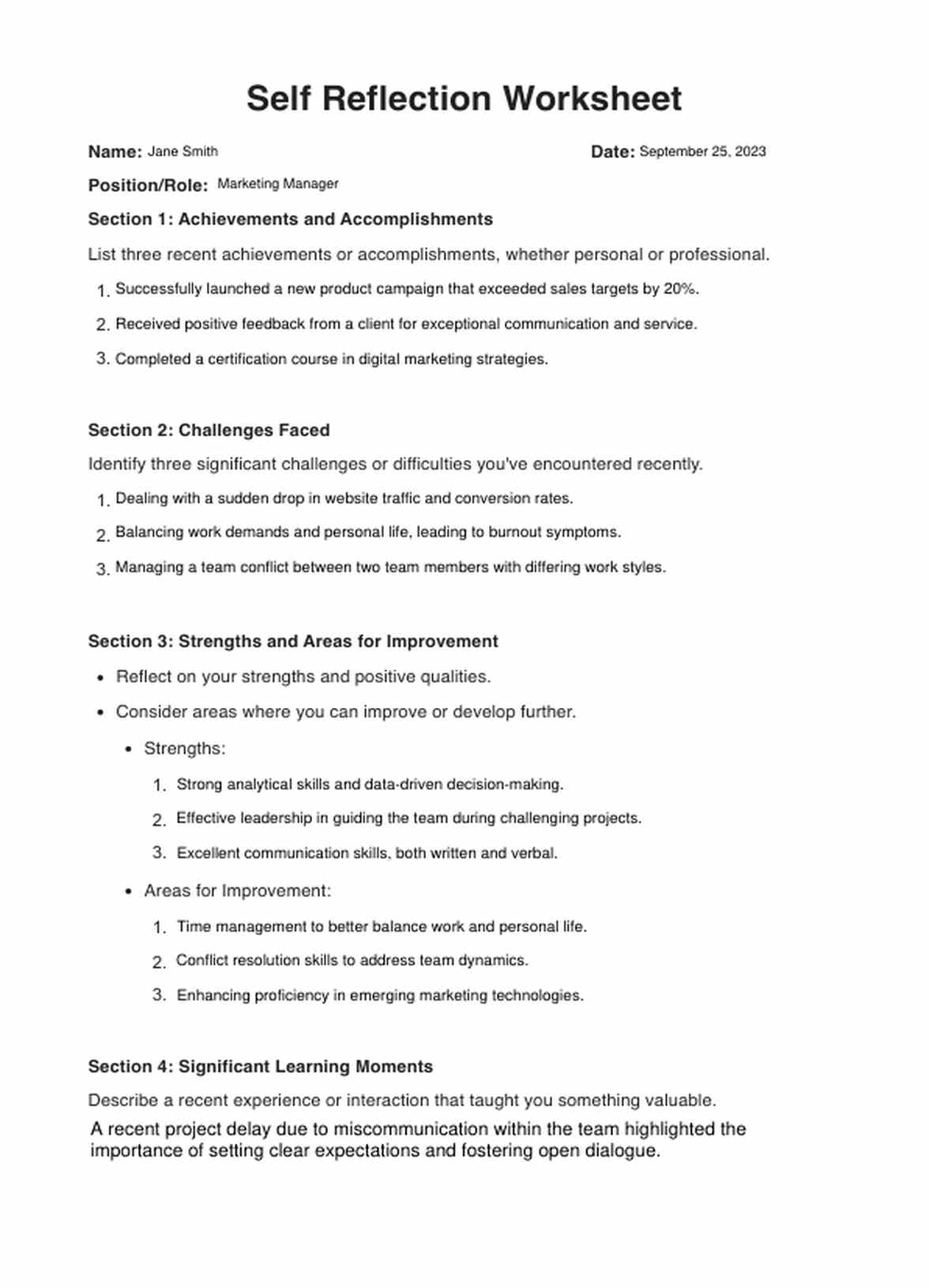

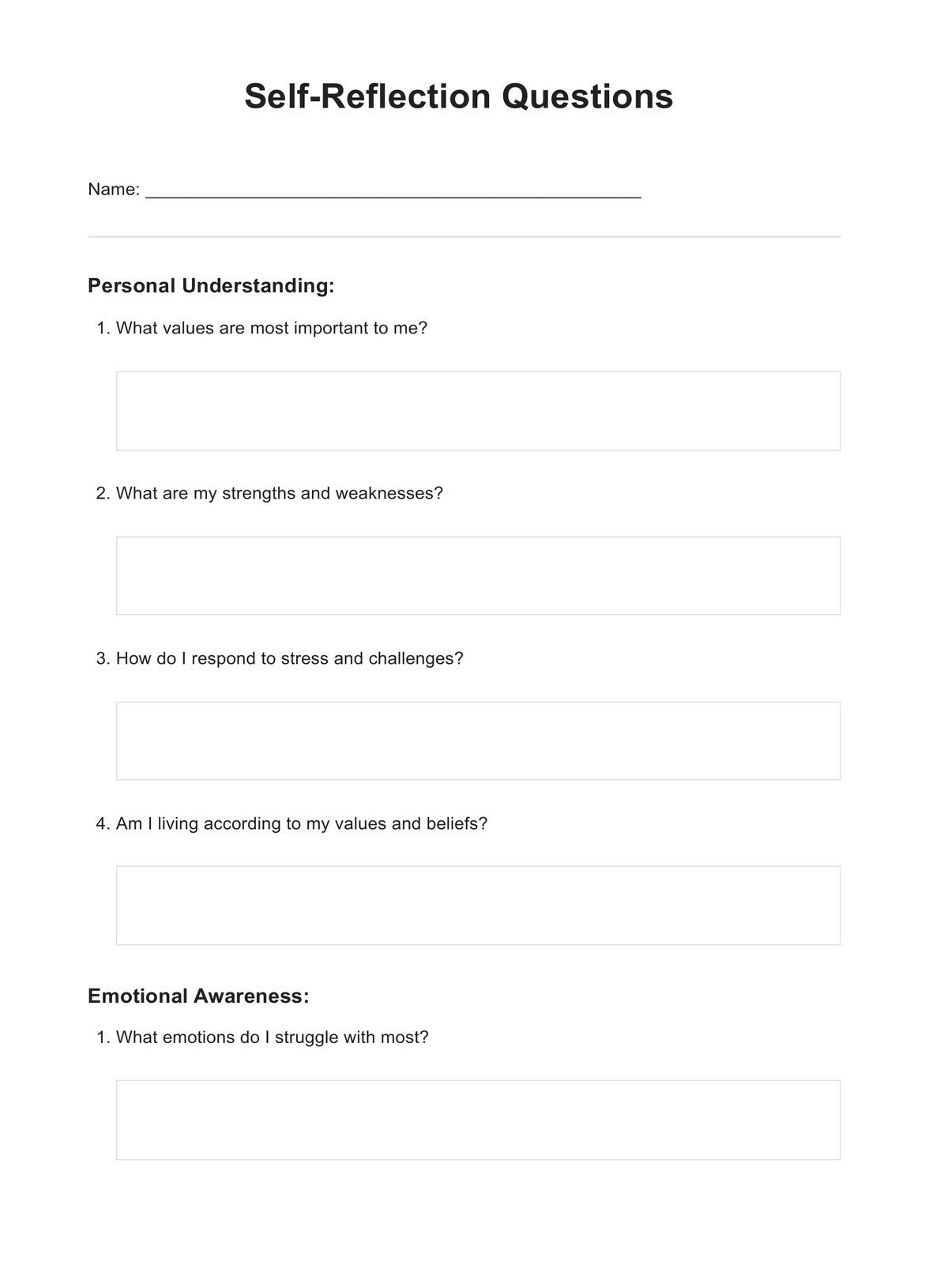
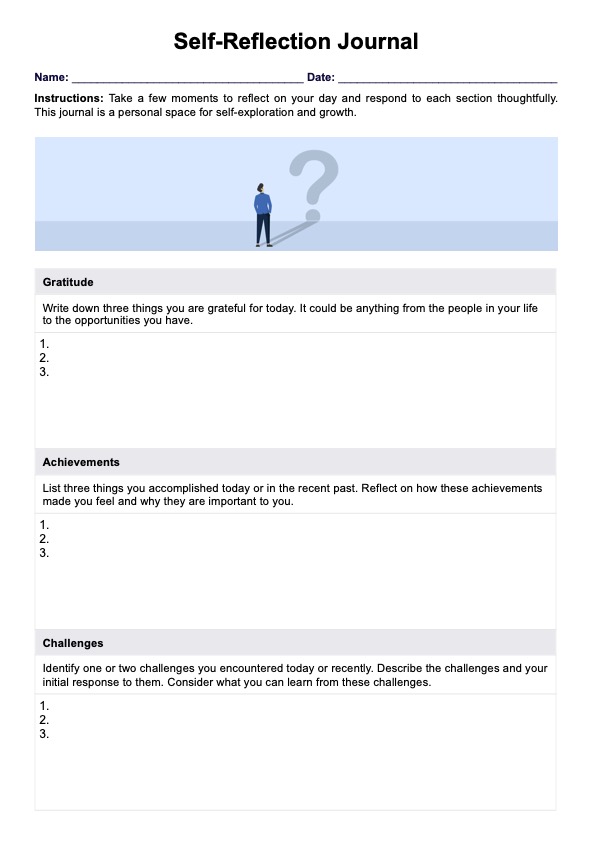













-template.jpg)






















































































